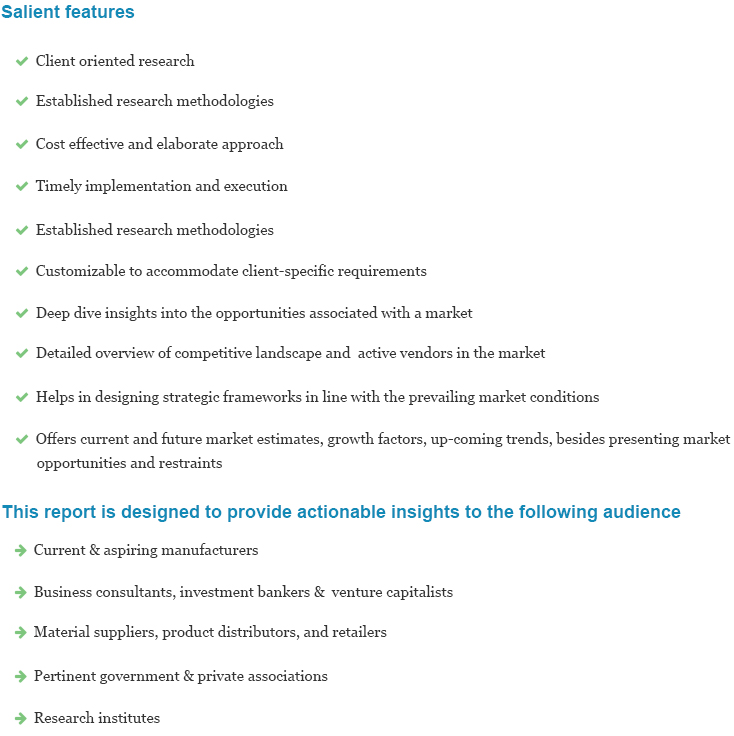
Industrial Automation Market Size, Share, Growth, Industry Analysis and Outlook, Market Research, Forecast Report, 2019 To 2025
- Published: March, 2019
- Format: Electronic (PDF)
- Number of pages: 70
- Industry: Semiconductors & Electronics
The global industrial automation market is expected to witness strong growth due to a shift in trend from traditional techniques to digitized systems. Increasing labor wages across industries and rising demand for practical solutions that can manage failure at component level can drive the market. Additionally, growing need to reduce the risk of accidents in the work environment is expected to boost the demand for effective automation solutions. Advancements in automation and robotics, along with improvement in sensor technologies, are also projected to support market growth in the years to come.
Growing need to cut the overall production cost is likely to fuel the demand for effective automation solutions. Industrial automation and instrumentation solutions enable organizations to optimize business throughput by proficiently monitoring processes. Adoption of operational technology (OT), coupled with information technology (IT), is the key trend gaining traction across the industries. Integration of OT and IT comprises amalgamation of OT systems, such as SCADA and MES, with IT solutions, including customer relationship management (CRM) and enterprise resource planning (ERP). For instance, Schneider Electric, a leading provider of automation solutions, introduced a packaging solution called EcoStruxureTM Machine. The machine is built on Industrial Internet of Things (IIoT) enabled platform. The machine can be integrated to the IT layer in order to collect the data for analysis, which can improve operations as well as maintenance. In addition, it will allow the convergence of OT and IT, which can further provide benefits, such as web interface and real-time control.
Furthermore, emergence of Industrial Internet of Things (IIoT) is anticipated to support market growth in the years to come. It is increasingly adopted to improve operational efficiency and implement automation solution in industries. Moreover, industries are projected to deploy IIoT software and services, which can, in turn, create opportunities for the market. For instance, in 2018, GE and Microsoft Corp. announced a partnership to enable the development of OT and IT to reduce the complexities in digital transformation projects. The GE Digital is likely to standardize its Predix solutions on Microsoft Azure and incorporate the Predix portfolio into Azure’s native cloud capabilities, such as Azure IoT, and Azure Data and Analytics. In addition, the companies will provide end customers premier Industrial IoT (IIoT) solutions across various industries.
However, high cost involved in R&D and setting systems for machinery production, and high maintenance expenses can hinder market growth. Moreover, lack of awareness regarding advantages of implementing industrial automation, especially in developing nations can limit market growth in the years to come.
Demand for industrial robots is increasing swiftly. Manufacturers are extensively installing industrial robots to make production and distribution easy and efficient. Installation of robots is reducing the human efforts in the manufacturing process, which, in turn, minimizes the production cost and increases the quality and production capacity. Industrial automation solutions are extensively adopted in a wide range of industries, such as energy and power, pharmaceutical, oil and gas, process industries, and chemicals. Process industry holds a prominent share in the market due to high adoption of industrial control and factory automation to optimize the production process. Additionally, growing demand for real-time visibility and complex operations in power, oil and gas, food and beverages, and mining industries is anticipated to boost the demand for industrial control and factory automation. Implementation of automated process is quite complex in process industries than the discrete industry. Therefore, deployment of control technologies, such as distributed control system (DCS), is high in the process industry.
North America holds a key share in the market and is expected to witness notable growth in the years to come due to rising labor costs. High investments by petrochemical and chemical industries to establish a manufacturing plant with new equipment can boost regional growth. Asia Pacific is anticipated to expand swiftly in the years to come due to supportive government policies and rapid industrialization. Furthermore, increasing investments in the energy and power sector is anticipated to fuel the demand for industrial automation. China and India are the prominent contributors to regional market growth.
Some of the leading companies operating in the industrial automation market are Rockwell Automation Inc.; Emerson Electric Company.; Honeywell International Inc.; Mitsubishi Electric Corporation.; and Siemens AG.

Choose License Type
- World's largest premium report database
- Transparent pre & post sale customer engagement model
- Unparalleled flexibility in terms of rendering services
- Safe & secure web experience
- 24*5 Research support service
